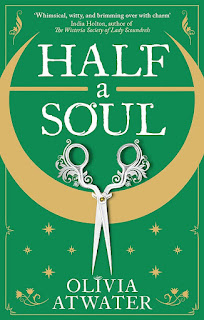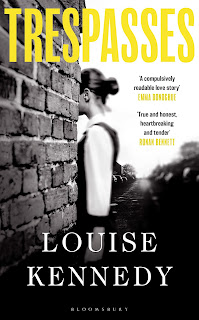Neva is born with an unusual ability - to predict the weather. At first she assumes everyone can do this, but as the frozen Thames ice starts to break under the frost fair of 1789, even little Neva can see that she's the only one to have foreseen the event. As she grows, she comes to understand how strange and unique her talent is. Using a mechanical figure made by her adoptive father, she disguises her abilities as being those of the automaton, the Weather Woman, and becomes a success in London's salons and soirees.
But Neva is frustrated that as a woman, she isn't taken seriously by the scientific experts of the day, and creates herself a male alias, Eugene Jonas, who can go where she can't. However, when Henri Denoue, an exiled French count, meets first Neva, then Eugene, he falls in love - perhaps with them both.
This is a lovely, fairly lightweight, but eminently readable, historical novel with a thread of fantasy or magic running through it. Neva's ability is never quite pinned down, but, as one of my daughters has a synaesthetic condition whereby she sees music as colours, that's rather how I understood Neva's visualising of clouds and colours. It doesn't quite matter to the plot which is one of thwarted romance, and adversaries who want to get hold of the Weather Woman for their own use.
As with Gardner's teen/YA books, there's a fantastic capturing of the period. Neva is very different to Austen's heroines, or the marriageable daughters of Bridgerton, not wanting to settle quietly into marriage and child-bearing, but to further her scientific curiosity, and her story explores the difficulties facing her.
Contrasting with the quiet domestic setting of Neva's adoptive family, are the grand houses of the 'bon ton', dingy lawyers' offices, seedy boarding houses, with characters to match - in fact a whole slice of Regency London from the high to the low.
































